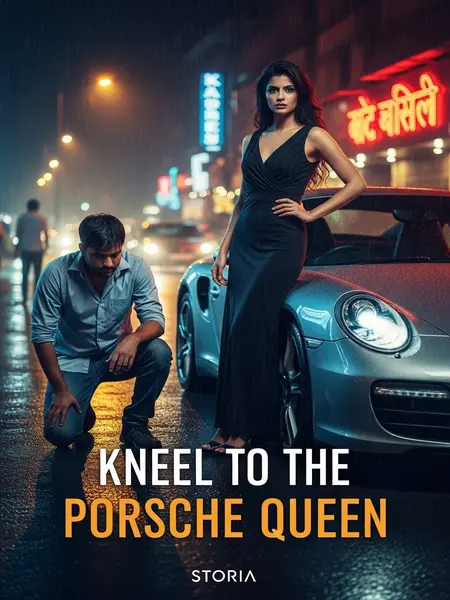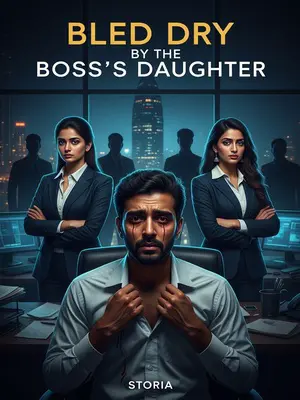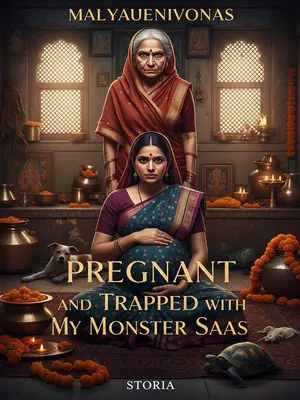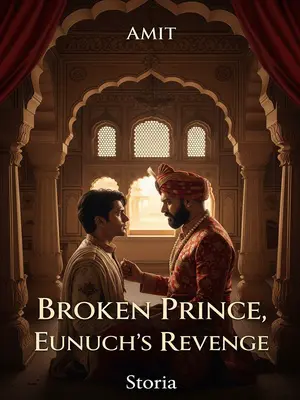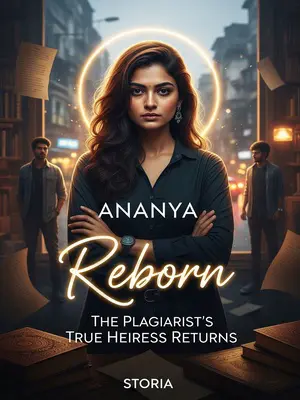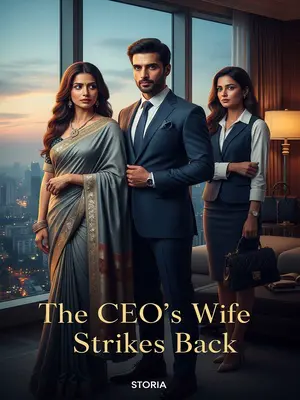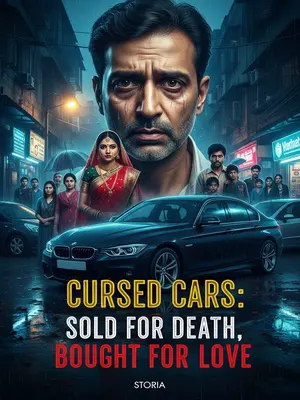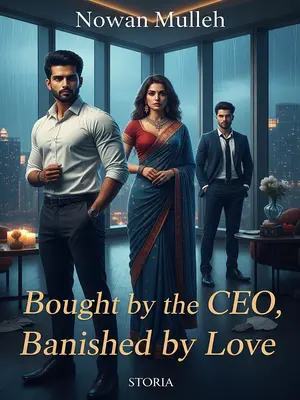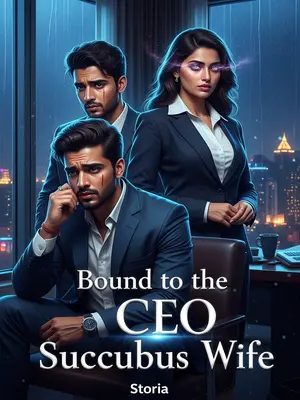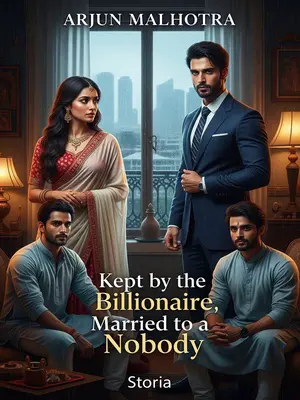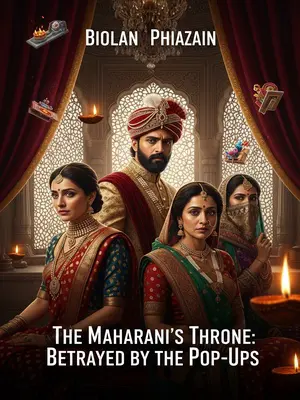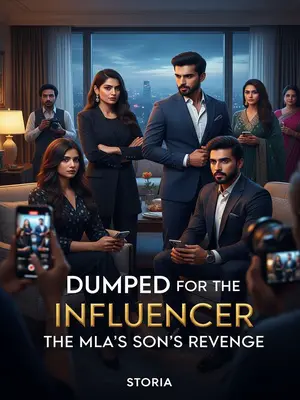Chapter 2: Power, Pepper, and Powerlessness
She kept smashing my window, screaming: "Do you know how much it costs to fix my car?"
Her voice reached a fever pitch, shrill as the morning azaan. It made my skin crawl. I pressed my forehead to the steering wheel, praying she’d run out of breath soon.
A chill ran down my spine. That old superstition—when you shiver, someone’s talking about you—flashed through my mind. Or maybe it was just fear. Real, raw, street-side fear.
She’s this hysterical—could it be she didn’t buy bumper-to-bumper insurance?
I’d heard horror stories about people skipping insurance, trusting their luck, cursing their fate later. Was she one of them?
If not, she’d have to pay a fortune herself to fix her Porsche.
Porsches aren’t cheap, especially here. Every scratch is a month’s salary for someone like me. I almost felt sorry for her, then remembered the coffee dripping from my chin.
Nearly half the drivers here don’t buy full insurance. They think, “Main sambhal ke chalaata hoon, why waste money on insurance?” Only when trouble comes do they realise how expensive luck can be.
It makes sense—save thousands a year, but only if you’re actually careful.
Dad’s lectures rang in my head again, shaking his finger, "Penny wise, pound foolish, beta. One accident and you’ll remember me."
This woman was terrifying.
Her rage felt supernatural—like a vengeful chudail from dadi’s horror stories. For a second, I thought of those tales where arrogance always got punished. But I doubted karma would come tonight.
While smashing my window, she pulled out her phone and started filming me.
The blue light of her camera flickered on my face. She was probably ready to send a viral video to her fancy WhatsApp groups, the ones with all the Page 3 aunties.
Her face—twisted, caked in makeup—looked just like that infamous Porsche lady from Mumbai, the one who smashed a car window on camera, saying, "Haha, ruining you is just a matter of two lakh."
That viral video haunted my memory. Suddenly, I was the poor sod at the wrong end of a meme. I shrank into my seat, wishing I could disappear.
The sight of her made my scalp tingle with fear.
Sweat trickled down my temple. I wiped it away, trying to look braver than I felt, but my legs trembled.
I rolled my window down a crack, pleading, "Can’t we just call the police and talk this out? You crashed into me. Let the police decide."
My voice quivered. She was so close, I could smell her harsh perfume mixed with alcohol. For a moment, I wondered if she’d slap me right through the gap.
She spat, "There were still three seconds before the light turned red, and you slammed the brakes? Did your mother forget to give you courage when she had you, letting a coward like you endanger everyone on the road?"
Always the mothers who got dragged in. I bit back my reply, but my heart burned. Around here, an insult to your mother is the lowest blow.
I clenched my fists, telling myself again and again not to hit a woman.
My knuckles whitened. I pressed them into my thighs, eyes squeezed shut. I reminded myself of every lesson about patience, about being the bigger person, about not letting anger win.
You have to brake at a yellow light. That’s how you build safe habits. Once you start driving recklessly, sooner or later something terrible will happen.
I thought of every accident story on the news, the weeping parents, the funeral processions. I told myself, "You did the right thing."
I asked, "This is a country with laws. Are you really going to assault people?"
I tried to keep my tone respectful, hoping some sense would break through her drunken anger.
She sneered, "So what if I beat you to death? I can afford to fix my Porsche, and I can afford to pay if I kill you."
Her words hit me like a slap. My jaw dropped. It was the old Indian story—money can buy anything, even someone’s life.
I said, "Your car’s only worth a few lakh—what are you showing off for?"
My voice was low, the words out before I could stop them. It was a gamble, poking the bear. But something in me just couldn’t take her arrogance.
Her face froze.
For a second, she looked almost human—hurt, shocked, ego bruised. Then, the mask dropped, and her anger returned tenfold.
A few seconds later, she went berserk, smashing my window again and again with all her strength.
The pounding grew frantic. My window trembled, my heart skipped a beat with every blow. The glass seemed to shiver, holding back disaster by a thread.
She shrieked, "Whose car is only worth a few lakh? Come down here and open your dog eyes! This isn’t a Cayenne, it’s a 911! The repair bill alone is enough to hire someone to finish your whole family!"
A group of delivery boys on their cycles slowed down, shaking their heads. "Rich log ka drama, yaar," one muttered. Her accent twisted the car names into something unrecognisable. I almost laughed, but her rage sucked out all the humour. In her world, class was everything. Her threats hung in the air, heavier than the morning humidity.
I had no idea what the difference between a Cayenne and a 911 was. Not every guy is a car enthusiast. I wouldn’t waste time researching cars I can’t afford.
My world was one of bus passes and shared autos. 911, Cayenne—might as well be the names of designer bags. I looked away, ashamed at my ignorance.
I didn’t know such a simple comment could offend her so deeply.
The rich and their egos—who knew the wrong word could light a fire this big? I stared at my dirty fingernails, suddenly very aware of my own place in the world.
Turns out, even among Porsches, there’s a hierarchy.
It’s true—no matter how high you climb, someone’s always looking down at you. It was the same in every mohalla, every society committee.
I thought she was unhinged. I wanted to drive away, but I couldn’t.
My mind raced through possible escape routes, but my body was frozen. The neighbourhood, usually so familiar, now felt like a hostile jungle.
My car starts with my phone, so I didn’t bring the key.
Trusting in technology now seemed like the dumbest idea ever. I cursed every ad for smart cars and digital keys.
When the crash happened, I’d instinctively shut off the engine for safety.
Dad’s old habit—switch off everything in an emergency. Only now did I realise how foolish that was with no backup.
Now, the car had timed out. To restart it, I needed my phone—which she’d already smashed.
Helplessness washed over me. Stuck, locked in by my own convenience. The irony tasted bitter.
At this moment, she suddenly acted like she’d suffered a huge injustice. She whipped out her phone, crying, "Arjun, why aren’t you here yet? Hurry up, I’m getting beaten up. If you don’t come soon, I’ll be beaten to death!"
Her performance was worthy of a Filmfare. Her voice cracked, tears streaming down her cheeks, as if she were a wronged heroine on a K-serial.
Hearing that, I nearly lost it.
I bit my tongue to keep from shouting back. My blood boiled. How quickly the story had turned. A bystander passing by on a cycle paused, shook his head in disbelief, and pedalled away. No one wanted to get involved.
She was the one hitting me, but when she called her husband, she twisted the story completely.
It was the same old tale. No matter how loud you shout, money will always have a louder voice. I felt trapped in a bad joke.
Right then, I truly understood the old saying: a bad wife ruins three generations.
Dadi’s voice came alive in my head, remembering how she used to shake her head during family arguments, muttering, "Buri aurat toh ghar ke teen pusht barbaad kar deti hai."
There’s a type of madwoman in this world—causing traffic accidents, cursing at police, threatening teachers in parent WhatsApp groups, flaunting wealth online, always claiming her husband is some big shot, and in the end, ruining her whole family by her own hand.
I saw her type in every building society—those women who threw their weight around, yelling at maids and scolding drivers, never realising the damage they caused.
This woman was that kind of madwoman—a real menace.
She reminded me of every viral news item—dangerous, entitled, untouchable. I felt a wave of pity for whoever Arjun was.
She slapped my window, cursing: "Get out! Today I’ll show you what a 911 is! Get out here! How dare you call me a poor ghost driving a Cayenne? I’ve never been so insulted in my life. A business tycoon stands before you and your pathetic dog eyes can’t even recognize it!"
Her voice rose and fell like a nagging saas. I pressed my lips tight, staring straight ahead, praying for a miracle.
I pleaded, "I failed to recognize greatness. Please, just let me go, okay? I won’t call the police. Can you just let me leave?"
I tried to put as much politeness as I could muster, almost folding my hands in a namaste. Maybe a little humility would calm her down.
She screamed, "Get out right now and kneel to apologize!"
She thumped on the glass. I could feel her spit spraying through the tiny gap. My hands shook, fighting the urge to open the door and run.
As she screamed, her spit sprayed onto my face, and I finally understood—alcohol. Her breath stank of it.
It hit me then—a strong, sour scent, like over-fermented toddy. She was drunk, properly so, eyes wild, words slurred. Suddenly, her madness made a twisted kind of sense.
No wonder she was so out of control.
In this country, drunk driving means no police sympathy, no insurance payout. She’d be desperate not to get caught. My fear spiked.
Drunk driving means no insurance payout, and a drunk person can’t stay rational.
Every traffic cop in Mumbai, Delhi, and Bangalore would say the same—“Sharabi pakde gaye toh gaya kaam.” For the first time, I understood why she was so desperate.
I didn’t dare get out. If a drunk woman attacked me, and I fought back, the police might call it mutual assault. I’d have a criminal record—my whole life ruined.
I could see the headlines already: "Man assaults woman at night—claims self-defence." No one would believe my side.
I scanned the empty street, hoping for a police van, even a milkman’s cycle. Nothing—just the distant clatter of a street dog chasing a plastic bag.
Just then, a Land Rover pulled up in the next lane.
Its headlights cut through the gloom. I heard the deep purr of its engine, saw the glint of chrome. Rich reinforcements had arrived.
I thought a passerby had come. I slapped my window, shouting, "Please, help! Call the police! Someone’s drunk driving and creating a scene!"
My voice rang out, echoing in the empty street. For a moment, I let hope flicker—maybe help had finally arrived.
But my hope turned to despair in an instant.
The woman dashed to the Land Rover, wailing theatrically, leaving me stranded in the glare of headlights and humiliation.
She clung to the car door, sobbing for effect. Her makeup streaked down her cheeks, a Bollywood drama come alive.
A man got out.
He wore a starched white kurta, gold chain thick as a paanwala’s wrist, and a stare that dared you to argue. His face was set, jaw clenched, anger radiating like Delhi heat in May.
Buzz cut, thick gold chain, huge rudraksha beads, a solid gold Ganpati on his wrist. He looked at her with concern. "Were you beaten?"
His voice was rough, used to giving orders. I saw him glance at me—his eyes promised trouble.
The Porsche owner pointed at her scraped, bloody leg.
Her tears switched off instantly. She jutted out her leg, making sure the blood was visible in the light. "Dekho, Arjun, what he did to me!"
She sobbed, "Look what I’ve been beaten into!"
She sniffled, the drama laid on thick. I could see the neighbours upstairs switching off their lights—no one wanted this kind of mess at their door.
The Land Rover owner’s face twisted in fury. He popped the boot, grabbed a heavy wrench, and strode towards me.
The sight of the wrench froze my blood. This was no empty threat. I pressed myself against the car door, heart hammering.
I quickly said, "Bhaiya, let me explain—"
My words came out in a desperate rush, the kind only a cornered man can manage. "Bhaiya, galat fehmi ho gayi! Main kuch nahi kiya!"
He didn’t care. He raised the wrench.
The metal glinted under the streetlight. I squeezed my eyes shut, bracing myself for the blow.
The first blow—the window held.
A thud reverberated through my bones. The glass shuddered but stood firm, as if it too was holding its breath.
Second blow—the glass cracked.
A web of cracks bloomed across the pane. My hands flew up, shielding my face.
Third blow—the window shattered, glass shards flying into my face, burning with pain.
Tiny cuts stung my cheeks. Blood trickled down, hot and sticky. The sound was deafening—a shattering finale to my night.
He grabbed my hair and dragged me out, growling, "So you hit my wife, huh?"
The gravel bit into my knees. I tasted blood and dust, the city’s signature flavour. My scalp burned. His grip was brutal, fingers digging in like iron claws. He hauled me out like a sack of wheat.
I blurted, "Your wife’s drunk and creating a scene. I never hit her!"
My words tumbled out, broken, panicked. He didn’t even blink.
But he didn’t care. "My wife, I pamper her at home, and you dare lay a finger on her? I’ll kill you!"
His spit sprayed my face, the stench of paan mixing with the stink of fear. He was the kind of man who believed in his own power, who’d never heard a no.
I couldn’t take it anymore.
I tried to wriggle free, but his grip was relentless. The fight in me flared—no more being a punching bag.
If it’s a woman, the police won’t call it self-defence. But now it’s a man, armed with a wrench, smashing my car.
My mind cleared—this was survival now. I could defend myself. No one would call this chivalry.
Why should I just take it?
All my anger, my helplessness, all of it boiled over. Enough.
I grabbed him by the throat.
My hands closed around his neck, tighter than I meant to. He gasped, shocked at my resistance. For a split second, I saw my own reflection in his wild eyes—was I becoming like them?
He wasn’t as strong as me. He struggled to pry my hands off, but couldn’t. His face turned purple, eyes rolling back.
For a moment, I felt powerful. He clawed at my arms, but my grip only tightened. I’d never been so scared—and never so angry.
The Porsche owner panicked, screaming, "Let go of my husband!"
Her voice cracked, shrill and desperate. She flailed her arms, searching for something—anything—to break my hold.
She suddenly ran.
Her heels clattered wildly on the tar. She sprinted to her car, hands shaking.
She dashed to her car, grabbed a small bottle, ran back, and sprayed it straight into my face.
A stream of burning liquid exploded against my skin. The pain was immediate, white-hot, like green chilli smoke in Amma’s kitchen—my eyes, my nose, everything on fire.
A burning pain shot up my nose—indescribable agony.
Every nerve screamed. My vision swam. My nose felt as though a thousand hornets had nested inside.
It hurt so badly! Every breath felt like fire in my airways and lungs. I coughed violently, and every cough sucked in more of that fiery sting.
I fell to my knees, clutching my chest, hacking like a tuberculosis patient. The taste of blood rose in my throat.
I tried to hold back, but instinct took over. I inhaled a lungful of that searing stuff.
My lungs spasmed. I couldn’t stop myself—each breath just pulled more agony in. My eyes streamed, blinding me.
She aimed the bottle at my eyes. I released her husband and shielded my face with my hands.
She sprayed again. I felt the liquid seep through my fingers, burning all the way down to my soul. Somewhere, I heard a dog howling.
The liquid splashed onto my hands, some drifting into my eyes.
The pain was blinding. My hands shook so hard I dropped to all fours. My face burned, my vision flickered.
I went blind—I couldn’t open my eyes at all.
Darkness swallowed me. My mind raced, panicked. I screamed, but no sound came out.
My hands shook uncontrollably, the pain so intense I wanted to tear my own skin off.
It was torture—pure, raw, relentless. I clawed at my cheeks, desperate for relief.
Pepper spray.
I’d only ever seen it in movies, laughed at it in viral videos. Now I knew how wrong I’d been.
For the first time, I realized how fake Bollywood movies are.
In the films, one spray and the villain crumples, but here I was—alive, but wishing I weren’t.
In crime films, the heroine sprays the villain with pepper spray, doesn’t finish him off, runs away, and gets caught again.
I always thought it was dramatic nonsense. Now, I knew the truth—the real thing was much, much worse.
But after feeling real pepper spray, I know movies are all lies.
The world spun, every sense ablaze. No dialogue could capture this.
My lungs burned. I clutched my chest, coughing and retching, even vomiting stomach acid.
I gagged, the taste of bile mingling with raw pain. My stomach twisted, every muscle seizing.
I grabbed a bottle of water from the centre console, desperate to wash my face, but the Land Rover owner seized the chance, yanked me out by my hair.
I heard the plastic crack as I fumbled for relief. He took advantage, dragging me into the open, hands merciless.
He couldn’t beat me in a fair fight.
He knew it, and so did I. His victory now was in my pain, not his strength.
I could have killed him barehanded.
Somewhere deep inside, I knew I could fight, but my body wouldn’t listen. Pain had made me a ragdoll.
But the pepper spray had destroyed me. I collapsed on the ground, my lungs burning as if they’d explode, a suffocating fear of death creeping in.
Tears streamed down my cheeks. I couldn’t breathe, couldn’t see, could barely think. The world narrowed to agony.
I was terrified I’d die from this stuff. Every breath was fire.
My mind flashed through childhood fears—drowning in the pool, choking on a guava seed. This was worse. Much worse.
Anyone who’s ever fried green chillies knows you need to open windows and turn on the fan, or you’ll choke.
My mother’s kitchen advice echoed in my head. Too late now, I thought bitterly, as my lungs screamed for mercy.
Anyone who’s chopped chillies and touched their eyes knows the agony.
Multiply that by a hundred, and it still wouldn’t come close. My nails dug into my palms, desperate for an escape.
Getting sprayed in the face is a hundred times worse.
My lips cracked. My head spun. I prayed for unconsciousness.
The Porsche owner, seeing me dragged out, rushed up and slapped me hard. "Get out here! Who did you say drives a Cayenne? Take a good look!"
Her slap rang out in the night, stinging more from shame than pain. The world blurred.
I had no strength to fight back.
Every muscle had given up. I let myself sink, defeated.
All the pain I’d ever felt in my life was nothing compared to the agony of that pepper spray.
I thought of every scraped knee, every toothache, every heartbreak. They were nothing—just background noise to this symphony of pain.
I coughed and vomited blood.
A coppery taste flooded my mouth. My body convulsed, helpless.
Yes, not just stomach acid—my throat was so raw from coughing, I was spitting blood.
I tried to spit it out, but it just kept coming. I could barely breathe, barely think.
I told myself to hold back, or I’d destroy my throat. But I couldn’t. My body just kept coughing, making me endure wave after wave of torment.
The world narrowed to pain, breath by ragged breath. I felt my consciousness flicker.
They both grabbed my hair, dragging me like a dead dog.
I barely registered the pain in my scalp anymore. My body was numb, my mind somewhere far away.
My hands and legs scraped against the curb. She pressed my head against the car bonnet, gritting her teeth: "Can you see now? This is a two-crore car! Whose car is worth just a few lakh?"
Her words buzzed in my ear, meaningless now. I wanted to laugh, to cry, to scream—but I could do nothing.
I couldn’t see. I couldn’t open my eyes at all.
My world was pitch black, spinning. I felt only the cold metal, the sticky blood, and the tears burning my cheeks.
She raged, "Kneel down and admit you’re a worthless fool with no eyes!"
Her voice grated in my skull. My knees buckled, but I refused to give in.
I gasped, "Do you… do you even respect the law…"
My words were faint, barely more than a whisper, but they carried all my pride.
She laughed, "Law? I am the law! My family has enough money to bury you!"
Her laugh was cruel, echoing off the closed shops, as cold as the marble floors of a five-star hotel.
The Land Rover owner squatted next to me, smacked my head: "Kid, kneel down and apologize to my wife, pay for the repairs, and this ends."
His hand was heavy, each word a slap to my dignity. I clenched my teeth, blood filling my mouth.
I gritted my teeth: "No way… I’m calling the police…"
Even as I said it, I knew how empty it sounded. Still, it was all I had left.
"Call the police! Go ahead! You really think you can win against the rich? Let me show you something."
He whipped out his phone, thumbed the screen. The glow illuminated his sneer.
He took out his phone, showing me his bank balance.
Even blind, I could feel the weight of those numbers. A lifetime’s savings for me, pocket change for him.
I couldn’t see how many zeros there were.
But I could imagine—more than I’d ever earn. My chest tightened. This was the gap, the real India.
He said, "I own more than eighty flats, collect thirty lakh in rent every year. Even if I break your legs and do three years in jail, I still make ninety lakh. But what about you?"
His voice was cold, matter-of-fact. The cruelty was in his indifference. I knew, in his world, I was nothing more than a mosquito to be swatted away.
I didn’t understand.
I’d always wondered about the gap between us—the unreachable distance between my dreams and his reality. Why, indeed, do some people have everything?
Why can’t some people afford a house their whole lives, while others own eighty?
My mind spun with old resentments. I thought of my father’s tired eyes, my mother’s savings, my own empty wallet.
The Land Rover owner rifled through my car, found my driver’s licence, took a photo, and said coldly, "Now I have your home address. What if your parents get hit by strangers’ cars every now and then? What if your kid gets dragged into an alley and beaten so badly they’re afraid to go to school? Isn’t that exciting?"
His words chilled me to the bone. I’d heard stories of such threats, but never believed them. Now, I felt the full force of fear.
The woman giggled, covering her mouth: "You can move, but when you sell your house, someone will come splash red paint on your door. Oh right, you can just abandon the house, right?"
Her laugh was manic, echoing off the walls. I saw flashes of news reports—threats, acid attacks, ruined lives. I shivered uncontrollably.
She squatted down, sneering: "No big deal, just losing a house. That’s nothing to you, right? No way, don’t tell me your family only has one house?"
She poked my shoulder, her nails digging in. I flinched. The humiliation stung worse than the wounds.
The Land Rover owner said coldly, "You have two choices: call the police and do as I say, or kneel, touch your forehead to my wife’s feet, apologize, and pay up."
His tone left no room for argument. I realised then, the law didn’t protect everyone equally. Not here, not tonight.
I knew they weren’t bluffing.
Their confidence was absolute. I believed every word.
They were capable of anything.
I felt it in my bones. People like them—money was armour, and they wore it like a crown.
If I called the police, it wouldn’t slow down their money-making at all. They could still send people to harass me and torment my family.
The thought of my mother, my sister, my father—targeted, hurt, because of me—made my blood run cold.
The poor can use the law to defend their dignity. But the rich can torment the poor until they’re too afraid to seek justice.
I knew it was true. My neighbours knew it. The tea seller, the security guard, the rickshaw driver—everyone knew it. But no one ever said it aloud.
I gasped for breath, coughing painfully.
My throat burned. Tears streamed down my face, mingling with blood and snot.
How I wished someone would pass by and call the police.
If only a milkman, a cop, anyone—just someone with a little decency. But at this hour, decency was in short supply.
But at two in the morning, the street was empty.
Not even a stray dog now. The city, so full of life by day, was dead as a graveyard. I’d never felt so alone.
The Land Rover owner barked, "Kneel! I don’t have time to waste with you till dawn!"
His voice shook with impatience. He yanked my hair, pulling me upright.
He grabbed my hair and yanked me up.
The pain was dizzying. I tried to twist away, but his grip only tightened.
I couldn’t resist. Just brushing against his clothes made my skin scream in pain.
Every nerve ending was raw, my skin aflame. I bit my lip to keep from screaming.
The pepper spray made my skin so sensitive that the slightest touch was agony.
Even the breeze stung, each breath a razor.
He forced me to my knees: "Touch your forehead to my wife’s feet!"
He shoved me down, pressing my face into the dirt. My knees scraped the road, sharp stones digging in.
He shoved my head down. My burning face pressed into the ground. The pain was unbearable…
I choked, gasped, tears and snot running into the mud. My body shook, muscles spasming.
This is what it means to wish you were dead.
I’d heard the saying a hundred times, never believed it. Now, I understood. Death seemed kinder than this.
The woman took pictures of me kneeling, laughing: "Come on, poor fellow, let me take a picture of your pathetic apology. I’ll send it to your family, let your parents and kid see."
Her laughter grated on my soul. I heard the click of her camera, the whirr of her phone. I prayed my family would never see this.
I gasped, rolled to the side, fighting the pain. I didn’t want to kneel.
My pride flared, a dying ember. I crawled away, clutching my chest, desperate for breath.
My father always said, “Beta, only bow to God and your elders. Never to people who want to break you.” I summoned every last bit of will.
Seeing me resist, the Land Rover owner lost it. He choked me from behind.
His arm closed around my throat, squeezing. The world blurred, my vision fading.
He snarled, "You tried to strangle me just now? Fine, now it’s my turn!"
His breath was hot in my ear, his anger absolute.
He squeezed, cutting off my air.
I clawed at his arm, panic rising. My lungs screamed for oxygen.
I kicked hard, slamming my head back into his nose.
The crack was sickening. He yelped, blood gushing down his face. For a moment, his grip loosened.
He screamed, blood pouring from his nose.
He staggered back, cursing. Blood dripped onto his kurta, staining the gold chain red.
He cursed, "This fellow just won’t give in, really wants to push me over the edge!"
His voice was thick with pain, rage. I spat blood, glaring at him through swollen eyes.
The woman sneered, "The poor only have their dignity left. Haven’t you heard? The poorer you are, the more you care about face. Don’t choke him, you can’t beat him anyway. Look over there."
She gestured carelessly, as if pointing to a cow on the road. Her words cut deeper than any wound.
She pointed at the roadside.
Her manicured finger indicated a filthy puddle, black with oil and rain.
There was a deep puddle by the open drain, left by the rain.
The stench was overpowering, sewage and rot. My stomach churned.
The Land Rover owner muttered, "It’s not that I can’t beat him, I just don’t want to go all out."
He wiped blood from his nose, glaring. His pride demanded payback, but his body was failing him.
He dragged me over and shoved my head into the muddy water.
The shock was electric—cold, filthy water flooded my mouth and nose. I gagged, struggled, but he held me down.
I couldn’t breathe, struggling as he pressed his knee on my head, roaring, "Keep acting tough! Aren’t you tough?"
My arms flailed, hands scraping the road. The world was water, mud, and pain.
The woman called out, "Arjun, don’t go too far. It’s not worth three years in jail."
Her concern was for him, never for me. I coughed, choking on dirty water.
He laughed, "Don’t worry, I’ll only cause minor injuries—no criminal charges. Then I’ll pay people to mess with his family!"
His laugh was cold, rehearsed. The cruelty of the rich—never getting their own hands truly dirty.
She asked, "You sure it won’t be serious injury?"
Her voice trembled. I heard the undertone—fear of the law, even for them.
He scoffed, "Don’t be scared. Legally, minor injury is nothing. Your husband knows the law."
The arrogance of knowing the loopholes. I felt hopelessness settle in my bones.
He yanked my head up, grinning: "How’s the filthy water taste? It’s just right for trash like you."
I spat a mouthful of sewage, glare unwavering. My pride was battered, but not broken.
I spat out muddy water, gasping, glaring at him.
My chest heaved, lungs screaming. I wanted to shout, to curse, but the words wouldn’t come.
He said coldly, "I don’t like the way you look at me. You know, with a day’s pocket money I could pay someone to gouge your eyes out."
The threat hung in the air, heavy as monsoon clouds. I shivered, not from cold, but from fear.
Before I could answer, he shoved my head down again.
The world went black and wet. My ears filled with the sound of my own heartbeat.
He was furious that he couldn’t beat me in a fair fight, so now he was torturing me while I was weak.
This, I realised, was the true face of power—not the strength to fight, but the cruelty to punish when you have the upper hand.
I couldn’t breathe.
I choked, sputtered, the world shrinking to one last gasp.
Cold, dirty water covered my face. I flailed, but he kept pressing me down.
I felt myself slipping, my mind going numb. But then—a strange relief.
But what he didn’t know was, this actually eased my pain.
The muddy water, disgusting as it was, cooled the fire raging on my skin. I sucked in lungfuls, desperate for the relief.
After being pepper sprayed, the best thing is to rinse with lots of water—even dirty water. It quickly soothed the burning on my face and hands.
Even as my face cooled in filthy water, shame burned hotter inside me. This city, this night, had taught me what real powerlessness feels like.
And as the first rays of dawn crept over the city, I wondered if anyone would ever believe my side of the story.
